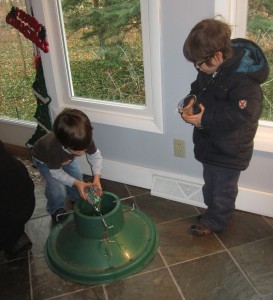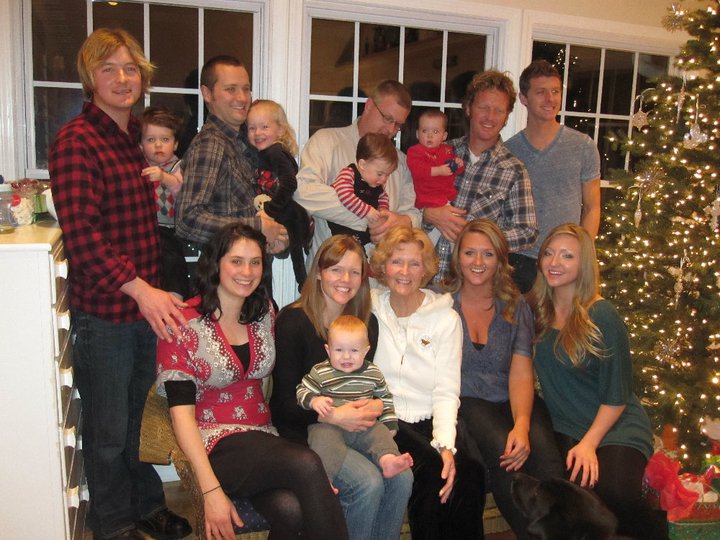 There’s something about shopping for a Christmas tree that appeals to all ages, and today two cars-full of family headed for the local market to choose just the right one. Our goal was “less than 8 feet and under $50,” and thanks to Klaus’ magic coupon, we came in under budget.
There’s something about shopping for a Christmas tree that appeals to all ages, and today two cars-full of family headed for the local market to choose just the right one. Our goal was “less than 8 feet and under $50,” and thanks to Klaus’ magic coupon, we came in under budget.
Young children have a unique take on family traditions. The netting of the tree for car-top travel was as much fun for them as choosing which tree to take home. So was the sawing off of its end, the trimming away of bottom branches, and the filling of the tree stand via glasses full of water.
But as much fun as they have, whether hanging ornaments or sweeping up pine needles, I think beneath it all what they really love is the togetherness that comes along with the traditions. Children have a sense of who belongs to their inner circle, and their natural yearning for family seems to be deeply satisfied when the group comes together, whether it’s for work, play, a meal, a conversation, or setting up a Christmas tree.
Maybe that’s true for adults, too, but what happens when we aren’t living near those we love or don’t have successful family relationships? Are we doomed to loneliness and dissatisfaction, especially at the holidays?
Just when it starts to look that way, God steps forward with an offer. Through Scripture verses he says,
“Would you like to spend the holidays with me? I sure do want to be with you, to strengthen you through troubles and be an overall help to you. You can tell me anything you want, pouring out all the details, and I’ll listen intently with love. Lay out your disappointments and frustrations, and we’ll sort through them together.
I want to be like both a father and mother to you, like a sister and brother. I want to be the head of your family. If you don’t have an earthly home, I’ll find one for you, and as we fellowship there together, you can get as familiar as you want with me. The closer the better, in my opinion. And by the way, my loving responses to your yearnings will be perfectly suited to each need.
I hope that as you take advantage of what I’m offering, that you won’t be sad, but if you are, I want to carry your sorrows for you. Eventually I hope you’ll invite me into your head to lead your thinking by my Spirit, since I’d like to take you to an emotional place of peace. And if you invite me into your heart, I will preserve your soul. You are my very own family, and I want to be close to you, not just on holidays but every single day.”
Each of these promises is taken directly from the Bible, and as you enjoy taking God up on his offer, how about doing it in the warm glow of a Christmas tree?
“I will not leave you as orphans; I will come to you.” (John 14:18)





